Honoring the Memory of Nine Inspirational Black Women
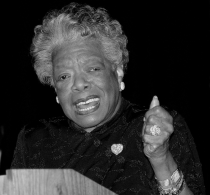
In Blackbirds Singing, a collection of public addresses by inspirational Black women, Janet Dewart Bell recognizes their powerful voices, vision, and efforts toward a more just society. Bell takes the time to highlight the depth of their roles as authors, educators, politicians, and the critical contributions they made to literature, politics, and their communities as a whole. Spanning the nineteenth, twentieth, and early twenty-first centuries, the twenty-eight women featured in Blackbirds Singing were steadfast advocates of civil rights who left behind a powerful legacy. This article remembers nine of these women whose efforts constitute decades upon decades of advocacy and service that continue to impact our lives.
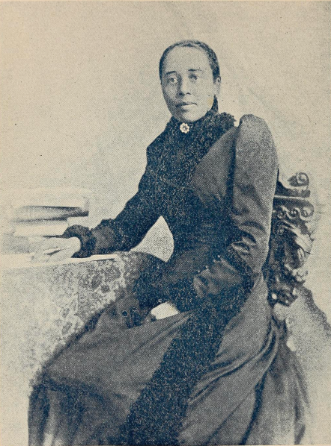
Anna Julia Cooper
Anna Julia Cooper lived from 1858 to 1964. Born a slave, Cooper went on to be an early and outspoken advocate for civil rights. She championed education for women and the Black community as a whole and became a nationally known author through her book A Voice from the South by a Black Woman of the South, published in 1892. Cooper went on to co-found the Colored Women’s League that same year and became a more prominent advocate for civil rights. She was also among the first Black women to earn a doctorate, which she received in 1925.
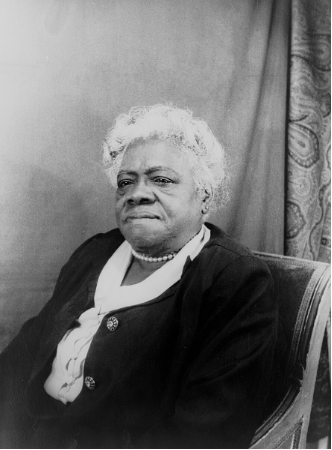
Mary McLeod Bethune
Mary McLeod Bethune lived from 1875 to 1955. Bethune was the daughter of former slaves, and is known today as one of the twentieth centuries’ foremost Black educators. Bethune was also a prominent leader of civil and women’s’ rights, a government official, and a businesswoman. She founded a school in Daytona, Florida, that came to be Bethune-Cookman University, where she served as the president. Bethune was the first Black woman to hold such a position. She went on be an advisor to President Franklin D. Roosevelt and was also the first president of the National Council of Negro Women, which currently includes over four million members.
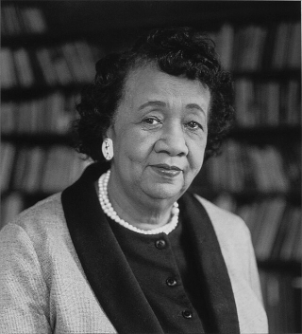
Dorothy I. Height
Dorothy I. Height lived from 1912 to 2010. Height was a dedicated advocate for racial equality. Most famously, she was crucial in organizing the March on Washington in 1963. Height is also known for her status as an advisor to presidents Franklin D. Roosevelt through Barack Obama. As a mentee of Mary Mcleod Bethune, Height later became the president of the National Council of Negro Women, a position she maintained for four decades. She received several awards throughout her life, including the Citizens’ Medal Award for distinguished service and the Presidential Medal of Freedom.
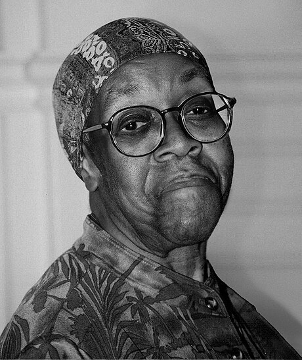
Gwendolyn Brooks
Gwendolyn Brooks lived from 1917 to 2000. Brooks is known as the first Black author to win the Pulitzer Prize for poetry, which she received for her work Annie Allen. She authored over twenty books throughout her life, including her autobiography, Report From Part One. Brooks was among the most influential literary figures of her time, and she was the first Black woman in the position of Poet Laureate Consultant in Poetry to the Library of Congress. She was also active in mentoring and sponsoring young writers, and there have been several schools named after her in honor of these achievements.
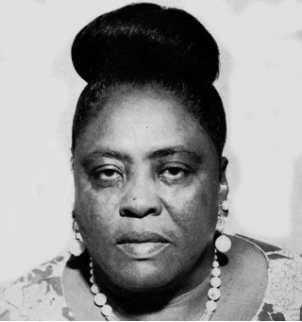
Fannie Lou Hamer
Fannie Lou Hamer lived from 1917 to 1977. Born the daughter of sharecroppers in rural Mississippi, Hamer followed in these same footsteps before eventually becoming involved with civil rights activism. Hamer was an organizer for the Student Nonviolent and Coordinating Committee and the Mississippi Freedom Democratic Party and was an outspoken activist and speaker for civil rights, particularly equal voting rights. In 1964, her public address at that year’s Democratic Convention is credited with bringing national attention to the civil rights struggle in Mississippi and the American South as a whole. Throughout her activism, Hamer endured arrests, beatings, and threats on her life. She was also known for helping families in need in her community, through founding organizations to help provide opportunities and family services for minorities.
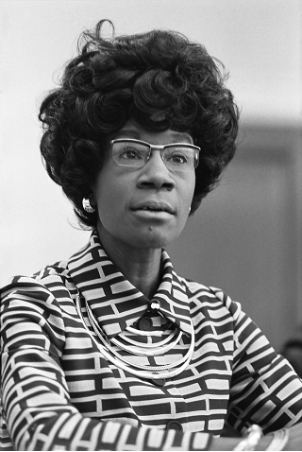
Shirley Chisholm
Shirley Chisholm lived from 1924 to 2005. Born to immigrants from Guyana and Barbados, Chisholm grew up in Brooklyn, New York. Chisholm was the first Black woman elected to the U.S. Congress in 1968, representing New York’s 12th Congressional District. Famously, in 1971, Chisholm was the first Black woman to run for presidential nomination. After serving seven terms as a congresswoman, Chisholm retired from government service to begin teaching at Mount Hoyoke College. Throughout her life, Chisholm was a dedicated advocate for education and employment opportunities for minorities. She also authored two books, Unbought and Unbossed (1970) and The Good Fight (1973).
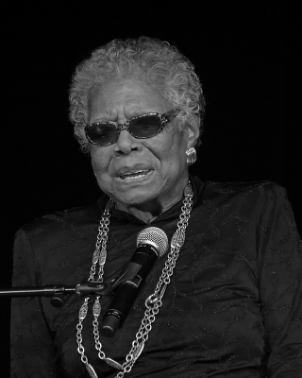
Maya Angelou
Maya Angelou lived from 1928 to 2014. Angelou is known for being an influential literary figure as well as for her distinguished career of civil rights activism. In addition to being an author and civil rights activist, she was also a screenwriter, director, producer, and professional dancer. Angelou is best known for her book Why the Caged Bird Sings, which became a bestselling memoir. She went on to be active in the civil rights movement, having worked with Martin Luther King Jr. at the Southern Christian Leadership Conference as well as with Malcolm X. Angelou was the recipient of multiple awards, including the Presidential Medal of Freedom, three Grammys for Best Spoken Word album, and the National Medal of Arts.
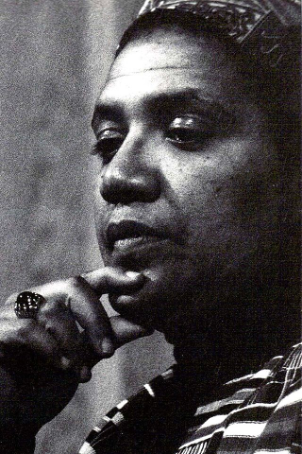
Audre Lorde
Audre Lorde lived from 1934 to 1992. Lorde was a highly accomplished poet who, as a Black woman and open lesbian within the academic and literary sphere, articulated what is now called intersectionality throughout her work. She contributed to feminist theory, critical race studies, and queer theory and taught at John Jay College and Hunter College in New York City. She was the recipient of numerous awards, most famously serving as poet laureate of New York from 1991 to 1992. Importantly, Lorde was active in many rights movements, including the feminist movement, civil rights movement, and the fight for LGBTQ equality. A free excerpt of Lorde’s chapter in Blackbirds Singing is available here!
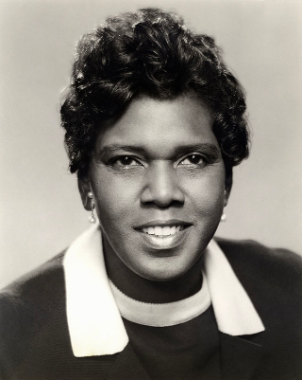
Barbara Jordan
Barbara Jordan lived from 1936 to 1996. Jordan was a lawyer, congresswoman, and educator. Throughout her life, Jordan was a steadfast vocal advocate of civil and women’s rights. In 1972, Jordan’s political career gained traction with her status as the first Black woman from the South to be elected to Congress. In 1975, Jordan also sponsored the expansion of the Voting Rights Act to be more inclusive of people of color. Jordan earned national fame with her 1974 speech in favor of President Richard M. Nixon’s impeachment, and was the first Black person to deliver a keynote speech at the 1976 Democratic National Convention.
Learn more about these women and their stories in Blackbirds Singing. And be sure to check out Janet Dewart Bell’s previous book: Lighting the Fires of Freedom: African American Women in the Civil Rights Movement, which recognizes the critical efforts of Black women involved in the Civil Rights Movement through firsthand conversations with the figures themselves!
Image Credits:
- Maya Angelou. Attribution: John Mathew Smith 2001, Baltimore M.D. Hopkins University. CC BY 2.0, via Wikimedia Commons.
- Anna Julia Cooper. Attribution: Miranda. Public domain, via Wikimedia Commons.
- Mary Mcleod Bethuns. Attribution: Carl Van Vechten. Public domain, via Wikimedia Commons.
- Dorothy Height. Attribution: Schlesinger Library, RIAS, Harvard University. No known copyright restrictions, via Wikimedia Commons.
- Gwendolyn Brooks. Attribution: John Mathew Smith 2001. CC BY 2.0, via Wikimedia Commons.
- Fannie Lou Hammer. Attribution: Mississippi Department of Archives and History. Public domain, via Wikimedia Commons.
- Shirley Chisholm. Attribution: Thomas J. O’Halloran restored by Adam Cuerden. Public domain, via Wikimedia Commons.
- Maya Angelou. Attribution: York College ISLGP. CC BY 2.0, via Wikimedia Commons
- Audre Lorde. Attribution: K. Kendall. CC BY 2.0, via Wikimedia Commons
- Barbara Jordan. Attribution: U.S. Congress, restored by Adam Cuerden. Public domain, via Wikimedia Commons.
